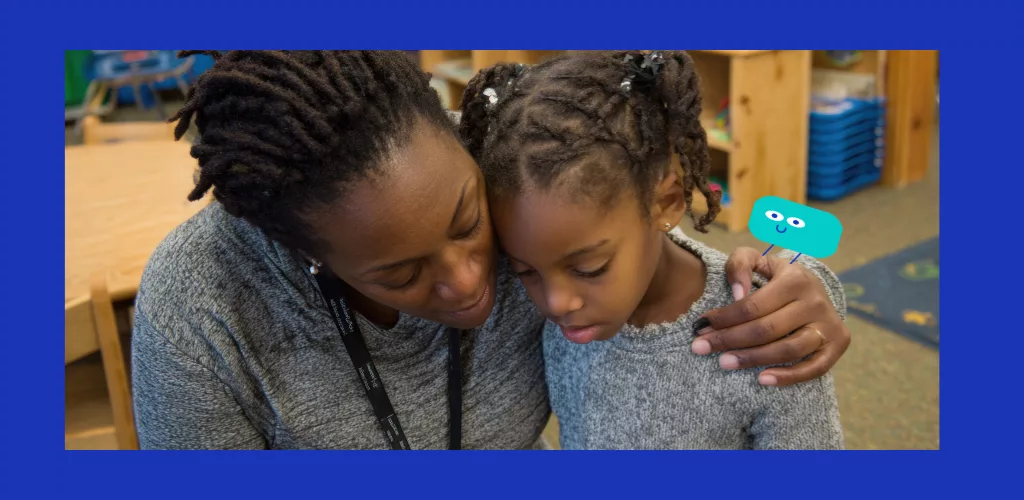Your child comes home from school with his head down. He doesn't want to go back. He's being insulted, pushed around, humiliated. You sense he's being bullied. Your first instinct? Run to the principal, summon the harasser's parents, or worse, intervene yourself in the playground.
Stop.
What if these reactions, however legitimate, are actually making the situation worse? What if, without meaning to, you're reinforcing your child's position as victim instead of helping him or her to cope?
School bullying affects thousands of children in France every year. Faced with this reality, adults often feel powerless. And the figures bear this out: 60% of schoolchildren think that adults don't know how to deal with bullying.. Perhaps they're right.
So what's the alternative? How can you help your bullied child without making things worse? Let's find out.
Why our adult interventions often make things worse
The trap of over-protection
When your child suffers, your parental instinct is to intervene immediately. It's only natural. But here's the problem: by rushing to his defense, you're sending an implicit message to other children: "He can't defend himself on his own, he needs an adult."
The result? The victim position is reinforced. Stalkers know they've found a target. And your child, despite your intervention, remains vulnerable.
The illusion of empathy and kindness courses
Many schools are setting up "kindness courses" or empathy programs to combat bullying. The intention is laudable. But these schemes are based on a false premise: that harassers lack empathy.
The reality is quite different. Harassing children are not devoid of emotion. They know exactly what they're doing. The problem is not a lack of sensitivity, but group dynamics and power.
Worse still, these courses reinforce the idea that the victim must be "kind" and "understanding". They are asked to turn the other cheek. But in a playground, kindness alone doesn't protect. On the contrary, it can be perceived as weakness.
Punishing the stalker: a false good idea?
You may be thinking, "We've got to punish the stalker, that's obvious!" Yes... and no.
Of course, certain behaviors must be punished. But focusing solely on punishing the harasser won't solve anything for your child. Once the adult is gone, what happens? The bully may retaliate. The other children may take over. And your child remains in the same position: that of the designated victim.
The real question is not "How do I punish the harasser?" but "How do I help my child get out of this victim position?"
The Palo Alto approach: changing the bullied child's posture
Understanding the relational system
The Palo Alto School, a brief therapy movement developed in the United States, proposes a radically different approach to bullying. Rather than focusing on the harasser, it looks at the relational dynamics at play.
Harassment isn't just about a "bad guy" attacking a "good guy". It's a system in which everyone plays a role: the harasser, the victim, the witnesses, the adults. And it's by changing this dynamic that we can break the vicious circle.
In concrete terms, this means : changing the posture of the harassed child so that they are no longer perceived as an easy target.
Stepping out of the victim role
Don't blame the victim. Your child is in no way responsible for the harassment he suffers. But he can learn to react differently to destabilize his harassers.
How? By changing the way you respond to attacks. Instead of showing that he's hurt (which feeds the harasser), he can learn to respond with humor, distance or indifference.
Case in point: a child is called a "buffoon" in the playground. His usual reaction? Look down, blush and walk away in silence. Result: the insult hits home, and will be repeated.
Another possible reaction: "Really? Thanks for telling me, I didn't know!" says the stalker with a disarming smile. The stalker doesn't expect this. He loses his power.
Humor as a weapon of defense
You may be thinking, "My kid's no fun, he'll never be able to do that." Think again. Humor can be learned. And it's one of the most powerful psychosocial skills for protecting yourself from harassment.
Why does humor work? Because it reverses the balance of power. The person who responds with humor shows that he or she is not affected. They regain control of the situation. And, above all, he becomes less interesting to the stalker, who is primarily looking for a strong emotional reaction.
The aim is not to become a humorist, but to develop the ability to stand back, to play things down and not let yourself be destabilized.
Social networks and harassment: let's stop confusing the enemy
The confiscation reflex: a false solution
Your child is being harassed on social networks. Insulting messages, humiliating photos, exclusion from groups... Your first thought? Confiscate his phone to protect him.
Error.
By confiscating his phone, you isolate him even more. You cut him off from his friends, from his sources of support, from what's going on in his group. And you reinforce his sense of powerlessness: not only is he being harassed, but he's also losing his connection with others.
Worse still, the harassment continues without him. Messages circulate, rumors spread, and he has no way of knowing what is being said or defending himself.
Social networks are not the problem
Many parents think that social networks are the cause of bullying. This is not true. Social networks are a toolnot a cause.
Harassment existed before the Internet. Children were insulted, excluded and humiliated in playgrounds, after school and in locker rooms. Social networks have merely displaced and amplified what already existed.
The real problem isn't Instagram or Snapchat. It's the relational dynamics between children. And this dynamic is first played out in real life, at school, at college.
Support rather than prohibit
So what should you do? Instead of confiscating the phone, accompany your child in their use of social networks.
Here are a few concrete suggestions:
-
Talk to him about what's going on. Ask him what he sees, what he feels, how he reacts.
-
Help him take a step back. Remind him that what's said online isn't always reality.
-
Teach them to block, flag and not respond to insulting messages.
-
Value his positive relationships. Encourage him to keep in touch with his true friends, those who support him.
-
Show her you're therewithout judging, panicking or confiscating.
Your role is not to protect him from everything, but to give him the tools to protect himself.
Words that hurt: deciphering the language of the playground
Why is "buffoon" so powerful?
In middle school, some insults have a devastating power. "Jester" is one of them. But why does this word do so much damage?
Because it doesn't refer to a physical defect or personal characteristic. It directly attacks the social value of the child. To be called a "joker" is to be designated as the one who is laughed at, the one who has no place in the group.
And this designation is terrible for a child or teenager, whose need to belong is fundamental.
Learning to respond to insults
When faced with an insult, your child has several options:
- Say nothing → The stalker does it again, because he sees it's working
- Crying or showing he's hurt → The stalker is satisfied, he's achieved his goal.
- Responding with an insult → The escalation begins, and often it's the victim who's punished.
- Respond with humor or distance → The stalker is destabilized, loses his power.
The fourth option is the most effective. But it takes practice. That's where you can come in, by acting out scenarios with your child at home, suggesting lines and helping him find his own style.
Concrete things you can do today
1. Listen without judging
When your child talks to you about what he's going through, resist the urge to minimize ("It's not serious, it'll pass") or dramatize ("I'll go and have a word with them!"). Just listen. Really listen. Let him express how he feels.
2. Don't rush to school
Before rushing off to see the principal or the stalker's parents, ask yourself: "Will this intervention help my child or make him more vulnerable?" Sometimes it's better to help your child find his or her own solutions.
3. Work on your posture
Help your child develop self-confidence. Not by repeating that he's great (he may or may not already know that), but by giving him concrete tools: learning how to respond, how to assert himself, how not to let himself be destabilized.
4. Train him to use humor and repartee
At home, act out scenes. You play the stalker, he practices his response. Try out different lines. Laugh together. The aim: to make him feel ready for the day it happens.
5. Promotes psychosocial skills
Bullying feeds on vulnerabilities. The more your child develops soft skills (self-confidence, emotional management, communication, creativity), the less likely he or she will be an easy target.
6. Remain vigilant without being intrusive
Keep an eye on what's going on, but don't spy. Make yourself available and listen, without being intrusive. Your child needs to feel he can talk to you without you panicking.
Things to remember
✔️ Adults often make harassment worse by intervening too quickly or badly.
✔️ Empathy classes aren't enough Kindness alone does not protect.
✔️ Changing the posture of the harassed child is more effective than punishing the harasser.
✔️ Humor and repartee are formidable weapons against harassment.
✔️ Confiscating the phone is not the solution Instead, support your child's use of social networks.
✔️ Your role is not to protect your child from everythingbut to give him the tools to defend himself.
Bullying at school is a scourge. But it is not inevitable. By changing the way we look at things and the way we do things, and by helping our children to develop their psychosocial skills and self-confidence, we can help them to break out of this spiral.
You don't have to be perfect. Just be present, listen, and be ready to accompany them in a different way.




0 comments